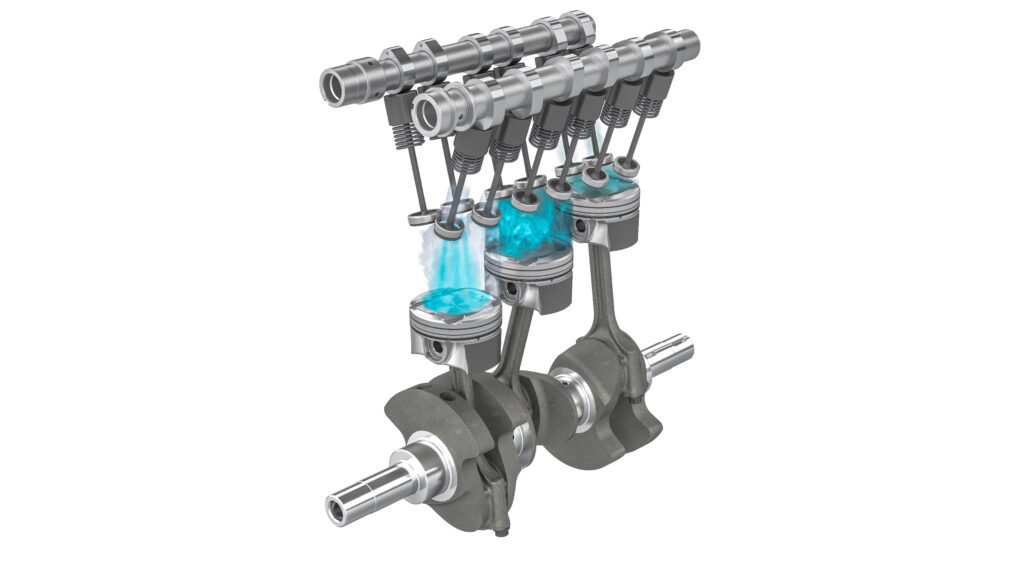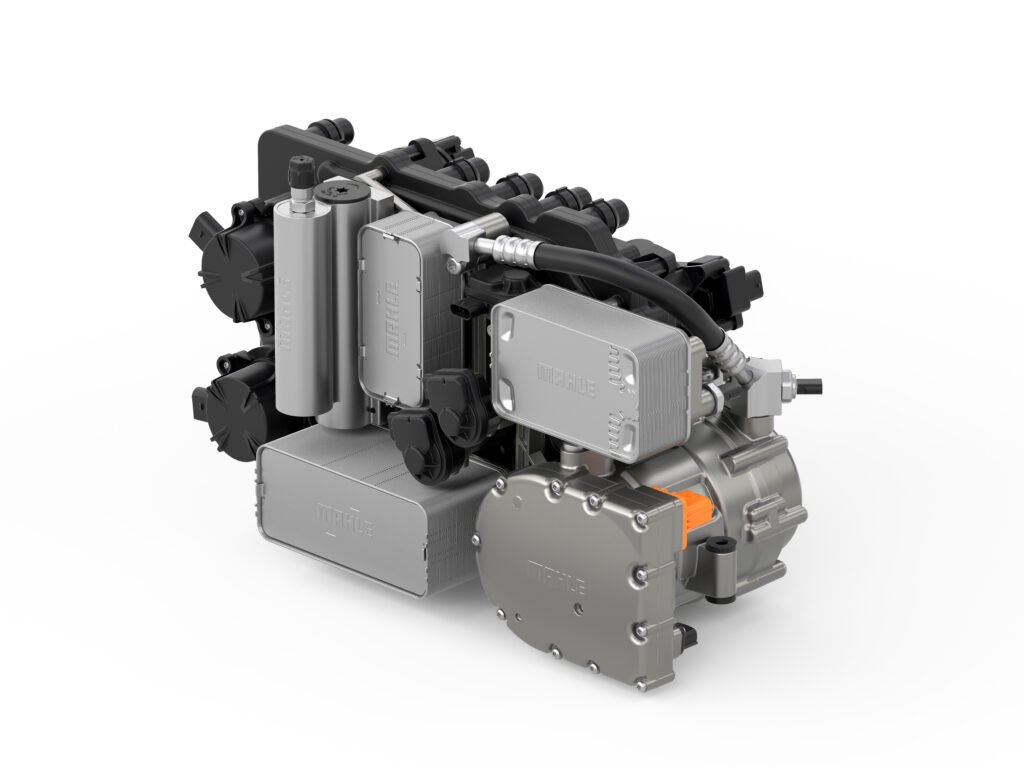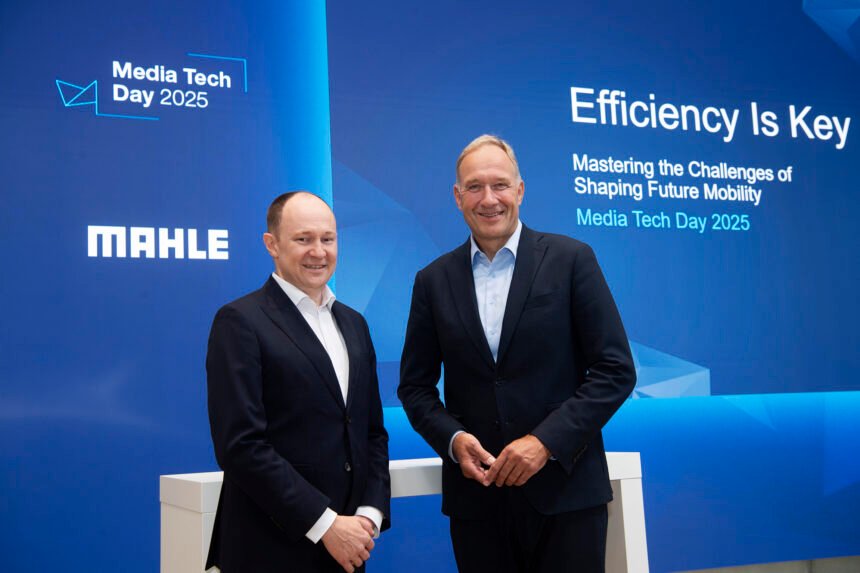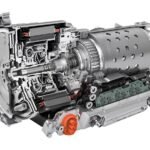Staff Writer
Munich: At a time when the global automotive industry is navigating complex challenges in climate policy, energy transition, and mobility preferences, MAHLE is making a decisive pitch for technology diversity and efficiency-driven innovation. During the MAHLE Tech Day held in Stuttgart and at the IAA Mobility event in Munich, the globally active automotive supplier emphasized the urgency of revising European CO2 legislation, promoting climate-neutral fuels, and pushing forward with hybrid solutions alongside pure battery-electric vehicles (BEVs).
Arnd Franz, CEO of MAHLE, made a strong appeal for legislative neutrality and technological openness to accelerate decarbonization in the mobility sector. He reiterated that rapid and effective climate protection cannot be achieved by focusing solely on electric mobility. In view of the slow adoption rate of BEVs, MAHLE believes that a diversified approach—comprising hybrids, range extenders, and sustainable internal combustion engines (ICEs)—is essential to reduce greenhouse gas emissions while supporting economic resilience and safeguarding jobs across Europe.
Speaking to international journalists, Franz stressed, “We need technology neutrality in legislation so that we can make rapid progress with climate protection. This also ensures that the expertise and innovative strength of the European automotive industry continue to flourish here. It’s about securing jobs and economic strength.”
At the IAA Mobility 2025 exhibition, held from September 9 to 14 in Munich, MAHLE is showcasing its forward-looking innovations under the theme “Efficiency³.” The company’s booth, located in Hall A1, presents groundbreaking developments that reflect its three strategic pillars—electrification, sustainable combustion technologies, and intelligent thermal management.

Emphasizing Hybridization and Renewable Fuels
MAHLE is strengthening its focus on hybrid powertrains and range extenders to bridge the gap between internal combustion and full electrification. These solutions, particularly gaining traction in markets like China, are forecast to grow by 15 percent annually in the production of electrified passenger and light commercial vehicles up to 2030. MAHLE intends to capitalize on this growth.
Franz also underlined the immense potential of renewable fuels—including hydrogen, biofuels, and synthetic alternatives—as a critical component in the transition to climate-neutral transport. He noted that renewable fuels could enable significant CO2 reductions, especially for the existing fleet of ICE vehicles. “MAHLE technologies already allow the direct use of renewable fuels without any compromises,” he said, urging the EU to formally recognize climate-neutral combustion engines within future CO2 regulations.
In the current regulatory environment, Franz cautioned that MAHLE might be compelled to halt investments in ICE technologies in Europe unless policy shifts occur. “The revision of CO2 legislation in Europe must not be delayed. Internal combustion engines operated using climate-neutral fuels must be recognized as part of the solution,” he emphasized.
Efficiency-Led Business Transformation
Beyond product innovation, MAHLE is also focused on strengthening its internal operations and cost structures. The company recently implemented a global restructuring initiative within just 200 days, improving agility in purchasing and strengthening regional business units. Its internal program “Back on Track 2025” is driving performance improvements across plants through initiatives such as energy-saving production processes and the integration of photovoltaic thermal systems.
Artificial intelligence is playing a transformative role across MAHLE’s business—from optimizing production through machine learning to accelerating product development using generative AI tools. A key example of this approach is the development of a bionic radial blower, inspired by penguin flippers, for vehicle air conditioning systems. This innovation, significantly quieter and more efficient than traditional designs, exemplifies what MAHLE engineers term “superhuman engineering”—a process in which AI generates millions of virtual prototypes to find optimal designs.

Among the highlight innovations presented by MAHLE at the IAA Mobility is its next-generation range extender system, designed to eliminate “range anxiety” associated with electric vehicles. The system comprises an ultra-efficient, high-voltage generator powered by a compact ICE using MAHLE’s proprietary jet ignition technology. With a continuous output of 85 kW and peak efficiency above 97 percent, the generator enables long-distance travel—up to 1,350 kilometers in WLTP conditions—while allowing for smaller, more resource-efficient battery packs.
Complementing this is a new thermal management module, another world premiere, that integrates an advanced heat pump to optimize cabin climate and drivetrain temperature. This system ensures consistent performance in varying climates while boosting vehicle range by up to 20 percent in winter. Compatible with both current (R1234yf) and future (R290) refrigerants, the module offers automakers flexibility in design and regulatory compliance. The modular design also reduces complexity, requiring fewer components and enabling easier vehicle integration.
Bionic Design and AI in Climate Systems
The bionic radial blower, inspired by the aerodynamic efficiency of penguin flippers, sets new benchmarks for automotive HVAC systems. It is 60 percent quieter and 15 percent more energy-efficient than traditional blowers. The use of in-house AI in the development process enabled rapid prototyping, reducing design cycles and accelerating time to market.
This innovation is suitable for all vehicle types—from passenger cars to heavy-duty commercial vehicles—underscoring MAHLE’s commitment to cross-platform solutions that combine performance, comfort, and sustainability.
Ethanol-Compatible Engine Components for Sustainable Mobility
Reaffirming its belief in sustainable combustion technologies, MAHLE has developed an advanced ethanol engine system optimized for E100 fuels. This includes specially engineered pistons, piston rings, and valve components that minimize oil consumption and maximize resistance to wear and corrosion. Life cycle assessments indicate that vehicles running on pure ethanol can reduce CO2 emissions by up to 70 percent. The power cell unit also delivers fuel savings of up to 1.5 percent, highlighting that traditional engine technologies still hold untapped potential for emissions reduction.
Toward a Greener, More Efficient Future
MAHLE’s comprehensive “2030+ Strategy” envisions a balanced, sustainable path forward, covering all powertrain technologies—battery electric, hybrid, and sustainable ICE—along with advanced thermal and energy management systems. With a holistic, efficiency-driven approach, the company is not only developing solutions for climate protection but also reinforcing its global competitiveness.
Dr. Marco Warth, Vice President of Corporate Research and Advanced Engineering at MAHLE, encapsulated the company’s ethos: “At MAHLE, we define efficiency as the optimal relationship between effort and result. Our innovations aim to conserve resources, save energy, and drive the transition to sustainable mobility.”
As MAHLE continues to push the boundaries of technological innovation, its presence at IAA Mobility 2025 underscores a clear message: the road to climate-neutral mobility is not linear. It is diverse, adaptive, and grounded in both evolutionary engineering and bold regulatory advocacy.








